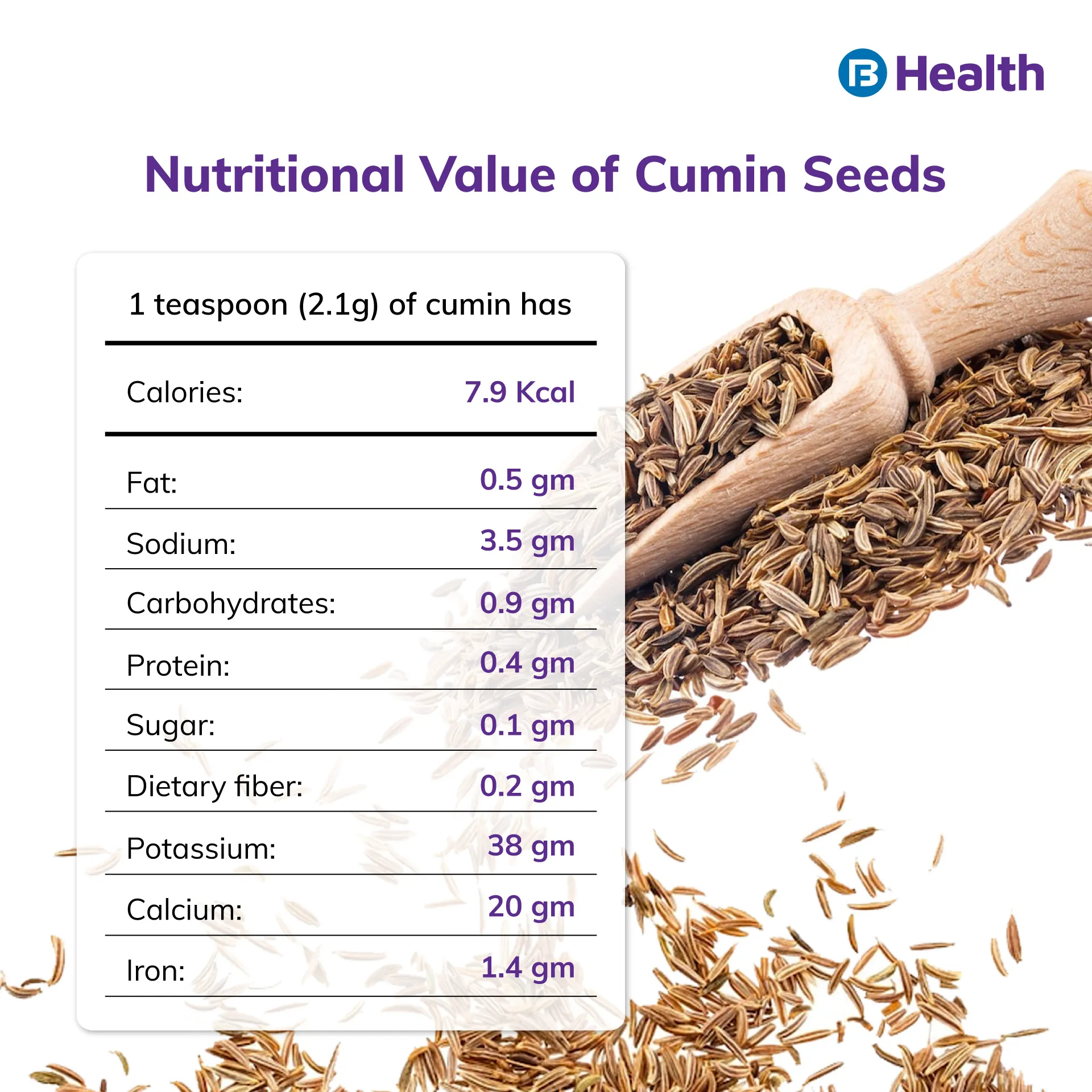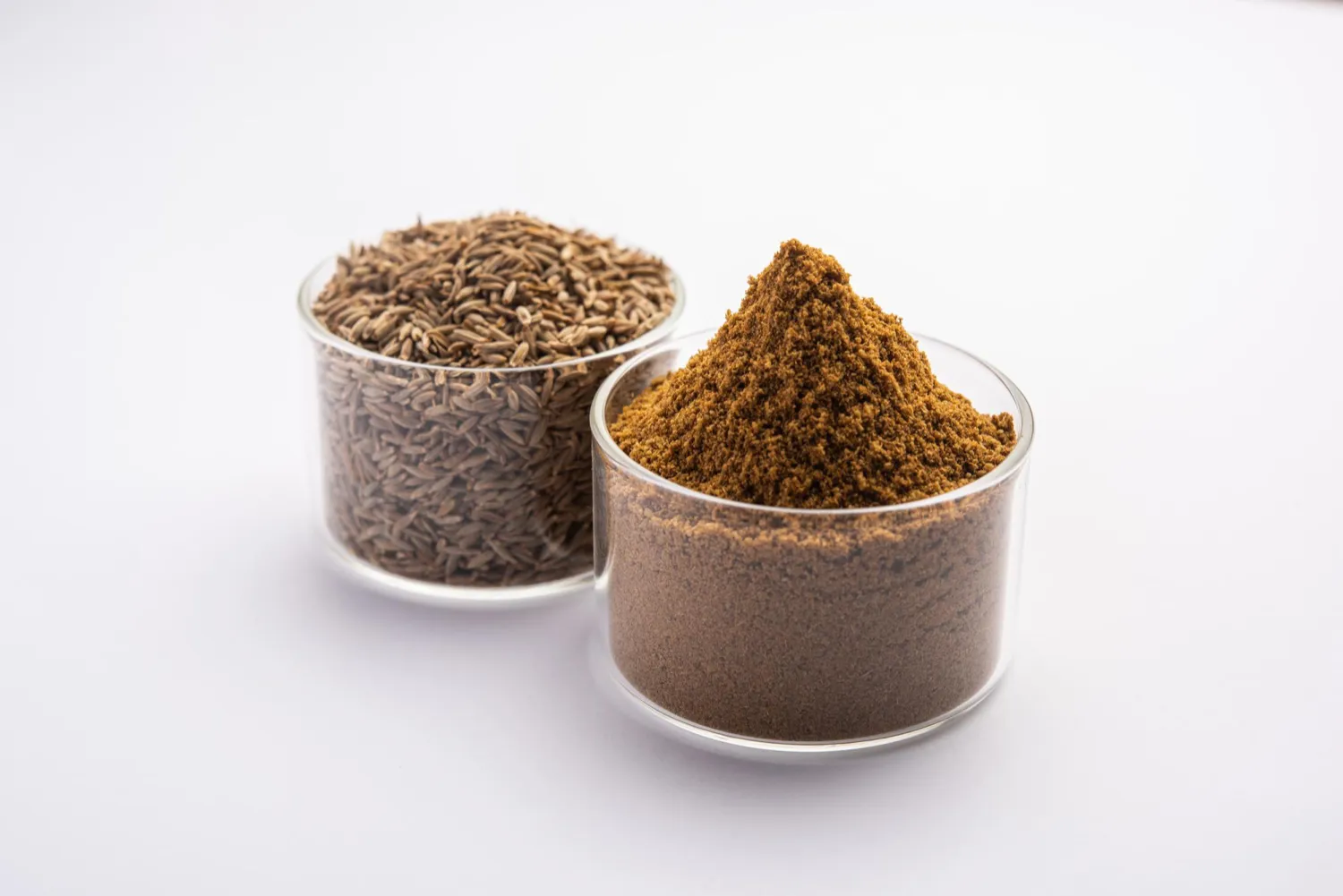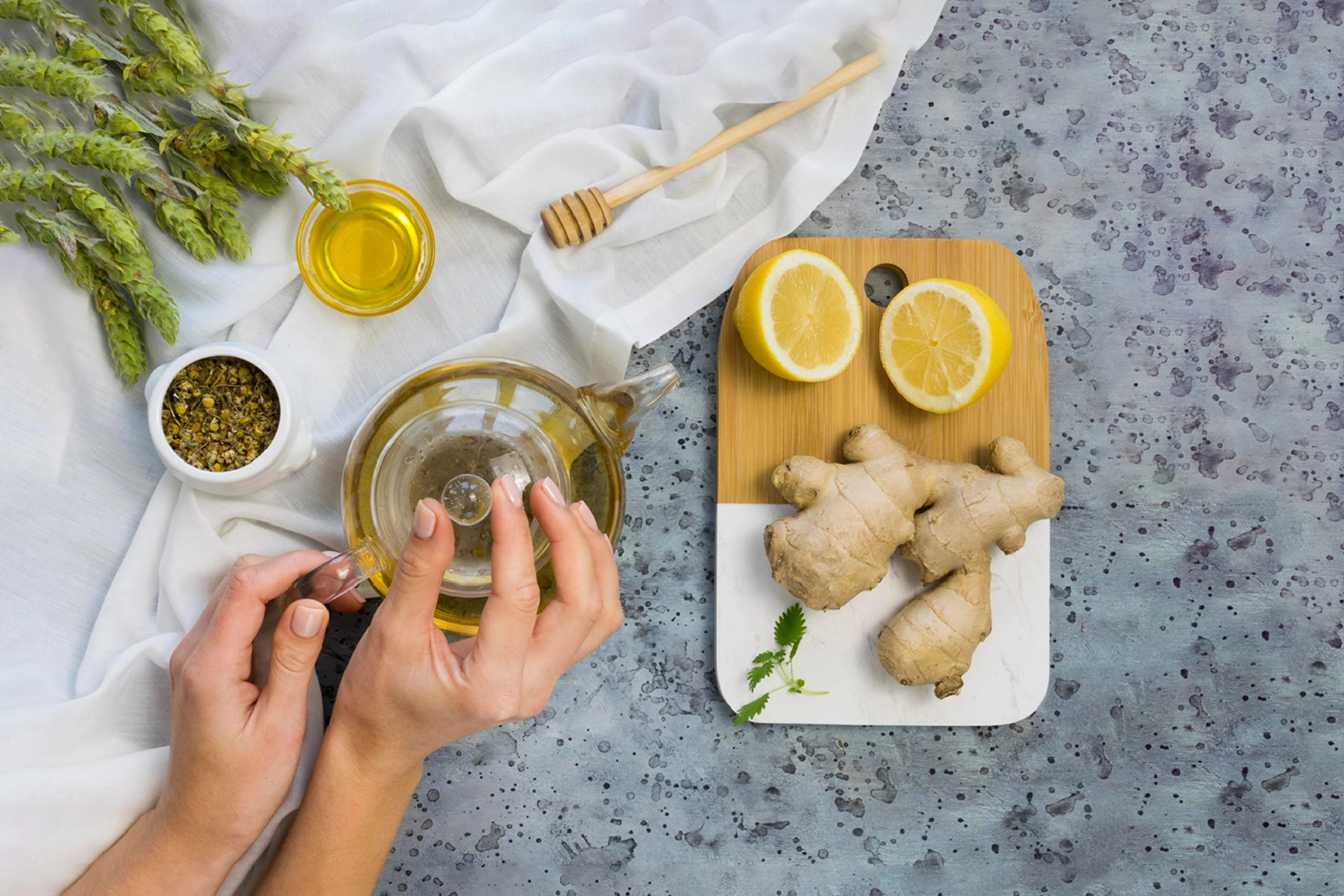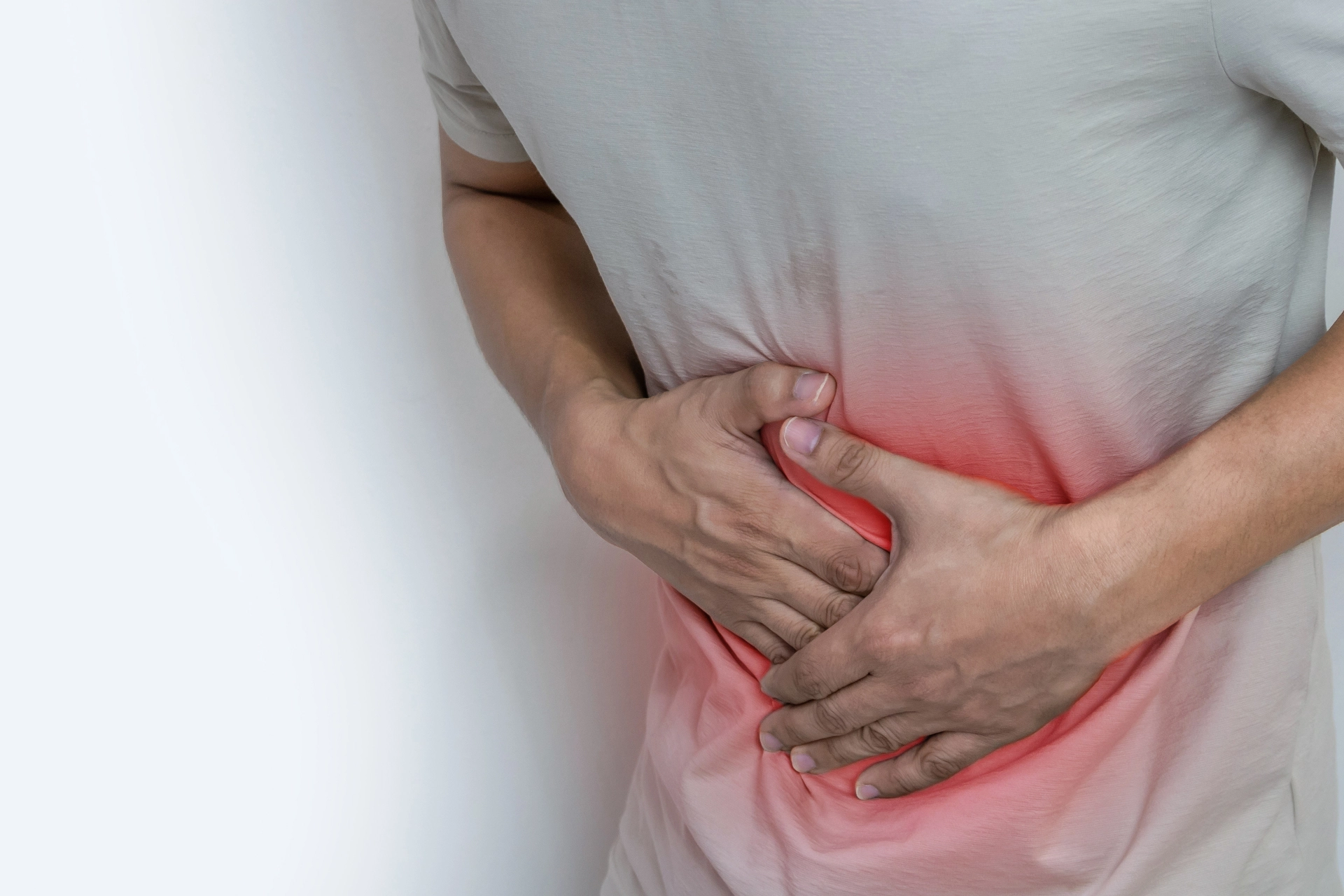Ayurveda | 11 min read
Cumin Seeds: Nutritional Value, Uses, Side Effects, Benefits
Medically reviewed by
Table of Content
Key Takeaways
- Cumin seeds has been used for generations for its flavor and health benefits
- Cumin seeds are beneficial even when used as a powder or extracted
- Cumin benefits you by helping manage diabetes, stress and cholesterol
Cumin is a staple ingredient in various cuisines such as Indian, Mexican, and North African. Coming from the seeds of the Cuminum cyminum plant, cumin seeds add a lot of health benefits and flavor to your meal. This earthy, warm, and nutty spice is also one of the traditionally used indigestion and heartburn remedies.
Nutritional Properties of Cumin
From the East Mediterranean to South Asia, cumin is well-known for having a wide range of therapeutic, nutritional, and pharmacological qualities. These seeds are used as a food flavour and for making perfumes all over the world. It is also a well-liked treatment in conventional medicine. Just little seeds of cumin provide a lot of nourishment.
The following are cumin's nutritional properties:
- Water: 8.06 g
- Energy: 375 kcal
- Protein: 17.8 g
- Total Lipid: 22.3 g
- Carbohydrate: 44.2 g
- Fibre: 10.5 g
- Calcium: 931 mg
Vitamins
- Vitamin C: 7.7 mg
- Thiamine: 0.628 mg
- Riboflavin: 0.327 mg
- Niacin: 4.58 mg
- Vitamin B6: 0.435 mg
- Folate: 10 µg
- Choline: 24.7 mg
- Vitamin A: 1270 IU
- Beta carotene: 762 µg
- Vitamin E: 3.33 mg
- Vitamin K: 5.4 µg
Fatty Acids
- SFA: 1.54 g
- MUFA: 14 g
- PUFA: 3.28 g
The cell matrix of cumin breaks down when it is ground or crushed, releasing the volatile substances known as essential oil. The flavouring properties of cumin are due to its essential oil. Fibre, carbohydrates, fat, sugar, protein, ash, minerals, vitamins, and several volatile chemicals make up cumin. It is a good source of vitamins A, E, C, K, and B6, as well as iron, magnesium, calcium, and phosphorus.

Health Benefits of Cumin Seeds
Traditional medicine frequently uses cumin to treat a variety of illnesses. For centuries, humans have used cumin as a remedy for anything from headaches to indigestion and diarrhoea. Indians have used it to treat leprosy, kidney and bladder stones, eye conditions, and even kidney and bladder stones.
It is abundant in bioactive substances like flavonoids, terpenes, and phenols. The advantages of cumin seeds are numerous. They have qualities that include antibacterial, antifungal, anti-inflammatory, antioxidant, and blood sugar control. They also function as an insecticide. They also have gastroprotective, hepatoprotective, and immunomodulatory effects.
Read on to know the top 9 ways adding cumin to your diet can improve your quality of life.
1. Improves blood cholesterol
According to studies, cumin has a positive impact on your cholesterol levels. One study found a 10% decrease in the level of oxidized LDL upon consumption of cumin extract [1]. Another study showed that consuming 75 mg of cumin twice a day led to a decrease in unhealthy triglycerides [2].
Additional Read: Foods To Reduce Cholesterol2. Helps manage diabetes
Cumin has certain components that help tackle the long-term effect of diabetes. One of the harmful effects of diabetes are the advanced glycation end-products or AGEs that harm your cells. AGEs affect your kidneys, eyes, small blood vessels, and nerves. In test-tube studies, several components of cumin seeds helped reduce AGEs [3].
3. Helps in weight loss and fat reduction
Cumin is also beneficial for those who are trying to manage their weight. Consuming 3 grams of cumin powder with yogurt every day leads to significant decrease in body fat, weight, and waist size [10]. Another study concluded that along with weight loss, cumin also led to decreased levels of insulin. This may also help prevent weight gain and other health conditions.
4. Promotes digestive health
Cumin has been used as a constipation home remedy and also one of the popular heartburn remedies for generations. It helps boost digestive enzyme activity, thereby increasing your digestion speed [4]. Cumin also helps in boosting bile release from your liver. This helps in digestion of certain nutrients and fats in your gut.
5. Helps fight food infections
Cumin seeds have antimicrobial properties that help reduce your risk of a food infection. Several of its components lower the growth of food bacteria and infectious fungi [5]. Upon digestion, cumin also releases megalomicin, which has antibiotic properties. Other than this, cumin may also help reduce drug resistance for some bacteria [6].

6. Aids the fight against drug dependence
Narcotic or drug dependence is a growing concern globally. As per a study, cumin components may help reduce withdrawal symptoms as well as addictive behavior [7]. More research is needed to understand its effect in this regard.
7. Helps reduce inflammation
The active components of cumin seeds have an antiseptic and anti-inflammatory effect. This helps in countering the effects of inflammation that may trigger another condition. Apart from this, the plant compounds also help reduce the levels of NF-kappaB, an inflammation marker [8].
8. Boosts memory
One other way cumin helps your body is by helping your central nervous system be more effective. This leads to a sharper mind, better memory, and better control over your limbs. As a result of its effect on the central nervous system, cumin may also aid in treating Parkinson’s.
9. Reduces stress
Cumin is an antioxidant and may help your body fight the effects of stress. In a study, consuming cumin extract before stressful activity led to lower stress response [9]. The study also suggests that cumin as an antioxidant may be more effective than vitamin C. Stress with exhaustion may also lead to an increase in acid reflux, resulting in acidity. Cumin also makes for one of the best acidity natural remedies.
10. Counters iron deficiency
Iron deficiency is one of the most prevalent nutritional deficiencies affecting up to 20% of the global population and up to 10 out of every 1,000 persons in the richest countries. Iron is especially important for children's growth and young women's replacement for blood loss during menstruation.
Cumin contains more iron than most meals. The amount of iron in one teaspoon of ground cumin, or 1.4 milligrams, is 17.5% of the adult RDI. This makes it an excellent source of iron, even when used sparingly as a spice.
11. Prevents cancer
Cancer begins to form as cells in the body multiply erratically. These aberrant cell clusters form tumours. Researchers have observed that cumin seeds may inhibit the development of many tumour types, including those brought on by colon, stomach, and liver malignancies, in several animal experiments. However, more research is required to understand if cumin can aid in the prevention of cancer in humans.
12. Cardio-protective impact
Traditional uses of Cuminum cyminum include the management of hypertension and dyspepsia. In renal hypertensive rats, the aqueous extract of cumin seed was tested for its ability to lower blood pressure as well as its impact on inflammation, the production of arterial-endothelial nitric oxide synthase, and oxidative stress.
Platelet aggregation brought on by arachidonate was prevented by cumin extract. Moreover, it reduced the ability of exogenous (14C) arachidonic acid (AA) to produce thromboxane B2 in washed platelets while concurrently increasing the generation of products produced from lipoxygenase.
13. Treats diarrhoea
Cumin has long been suggested for the treatment of diarrhoea by practitioners of traditional medicine. This advantage of cumin is beginning to be recognised in western medicine.
14. Reduces IBS symptoms
Irritable bowel syndrome-related cramps, intestinal spasms, nausea, and bloating have all been studied concerning cumin extract (IBS), making it a good alternative for those unable to purchase pricey prescription medicines to treat their IBS.
Different Ways of Using Cumin Seeds
Moreover, cumin seeds have anti-stress, anti-mutagenic, and anti-carcinogenic properties. Furthermore, it has analgesic, immunological, anti-osteoporotic, bronchodilator, hypotensive, memory-improving, and immunological properties. It also possesses antibacterial and antimicrobial qualities. Therefore, cumin lowers the chance of contracting a foodborne illness. Also, it contains a lot of calcium, which promotes bone density and slows the development of osteoporosis.

Incorporate cumin seeds into your diet
Several Indian and Latin American dishes frequently include the ubiquitous seasoning cumin. While some recipes call for using whole cumin seeds, others ask for the powdered variety.
Both cumin seed and powder have a deep, earthy, and nutty flavour. To enhance the flavour of cumin seeds, if you're using whole ones, try toasting them in a non-stick pan.
Here are just a few ideas on how you might experiment with cumin as a food seasoning:
- To a spice rub for grilled fish or chicken, add cumin
- To prepare a classic Indian raita, combine yoghurt, vegetables, and other spices with cumin
- Combine rice or couscous with cumin seeds
- Include cumin in your preferred chilli recipe
- Add roasted little cumins to your salad
In the next section, go through a few recipes for Cumin Seeds.
Cumin in the morning
Breakfast fuels the day and jump-starts the metabolism. It prolongs your feeling of fullness. If you skip breakfast, you might feel hungrier and consume more calories. If you're attempting to lose weight, eating a high-protein breakfast is best. Instead of conventional tea or coffee, serve food with a glass of warm water, some ground cumin powder that has been roasted, and a squeeze of lemon. In the summer, you can skip the warm water step and use it as a cooler.
Use it to fill in the gaps
Regular mealtimes reduce hunger cravings. It promotes restraint and gives you energy. It also speeds up metabolism. Use cumin powder in a green smoothie or a bowl of curd as a mini-meal or a filler in between meals.
Take it along with high-fiber foods
It is best to eat meals high in fibre to feel satiated for a longer period of time. Berries, beans, whole grains, seeds, nuts, and other foods are examples of foods high in fibre.
Make your own Buddha bowl by taking a bowl and adding some berries, diced cucumber, chopped onion, mixed seeds, sea salt, lime juice, and cumin powder.
How to Prepare Cumin Seeds
Here are also a few simple recipes to consume cumin seeds:
Cumin seed water
Ingredients:
- Cumin Seeds: 1–2 teaspoons
- One glass of water
- One teaspoon of honey (optional)
Recipe:
- Cumin seeds should be added to a glass of water and soaked over the night
- Every morning, sip the water on an empty stomach
- To taste, add a spoonful of honey
Cumin seed tea
Ingredients:
- Cumin Seeds: 1–2 teaspoons
- One glass of water
- Lemon: 1
- Honey: 1 teaspoon (Optional)
Recipe:
- To the water, add a teaspoon of cumin seeds
- Boiling water can cause nutrients to be lost; therefore, avoid doing so
- Add a teaspoon of honey for flavour
- Consume the tea twice a day
Cumin seed sherbet
Ingredients:
- 1- to 2-tsp. cumin powder
- 500 ml of water
- Lemon: 1 Teaspoon Honey: 1 (Optional)
- 12 teaspoon fennel seed powder
- Mint Leaves: 4-5 (Crushed)
- Crushed basil leaves: 4-5
- Black salt: A pinch Cinnamon Powder: A pinch
- Ice cubes: Extra Option
Recipe:
- 500-600 ml of water should be used to soak 1-2 teaspoons of cumin seed powder and 1/2 teaspoon of fennel seed powder overnight
- In the morning, drain the water and add crushed mint and basil leaves along with lemon juice and cinnamon powder
- You can offer it cold
- Mix thoroughly after adding honey and black salt to the water when desired
One other type of cumin is Nigella sativa. These are known as black cumin seeds and have similar benefits. The difference between these two types is that black cumin seeds are bitter and usually used whole. In contrast, cumin seeds have earthy flavors and are consumed as powder.
Possible Side Effects of Cumin Seeds
Generally speaking, cumin seeds are harmless and safe to eat. Individual differences mean that fennel seeds might have negative effects on certain people. Despite the fact that cumin seeds offer several health advantages, including the ability to relieve gas, cumin can occasionally cause heartburn. It can have the following side effects:
Belching
It possesses carminative qualities that can occasionally result in excessive burping or belching. Sometimes belching can have an odd sound and unpleasant smell. One of the signs of digestive diseases such as gastric reflux disease is excessive belching. The essential oils found in cumin seeds are extremely flammable substances. Cumin seeds can seriously harm your liver or kidneys if you take them in excess
Possible narcotic qualities
Cumin seeds have narcotic qualities that lead to nausea, drowsiness, and mental fogginess.
Lowers blood sugar levels
Cumin seeds offer anti-diabetic qualities that regulate blood sugar levels. However, eating cumin seeds and diabetes medication might cause hypoglycaemia by lowering blood sugar levels. It is wise to ingest cumin seeds in moderation as a result. More doses may not benefit you if you want quick results.
Reduces testosterone levels
According to certain research, cumin seeds reduce testosterone levels, which affects sperm motility and fertility. Moreover, in some cultural customs, the administration of cumin can result in miscarriage.
Consequently, it is crucial to use caution when consuming cumin seeds.
Be wary of the following side effects of excessive or incorrect consumption of cumin seeds:
- Nausea
- Drowsiness
- Mental fog
- Heavy menstrual bleeding
- Reduced fertility for men
- Miscarriage
If you are planning to take cumin supplements, talk to your doctor to get the best advice. You can book an in-clinic or doctor online in seconds on Bajaj Finserv Health. This way you will be able to talk to the best doctors and nutritionists and stay healthy. You can also choose from various test packages to put your health worries at ease. Take proactive measures for your health and start leading a healthier life!
References
- https://www.ncbi.nlm.nih.gov/pmc/articles/PMC4039583/
- https://pubmed.ncbi.nlm.nih.gov/27781121/
- https://pubmed.ncbi.nlm.nih.gov/26548586/
- https://www.sciencedirect.com/science/article/abs/pii/S0308814608002483
- https://pubmed.ncbi.nlm.nih.gov/20922990/
- https://pubmed.ncbi.nlm.nih.gov/27830269/
- https://pubmed.ncbi.nlm.nih.gov/27830269/
- https://pubmed.ncbi.nlm.nih.gov/15659827/
- https://www.tandfonline.com/doi/full/10.3109/13880209.2010.541923
- https://pubmed.ncbi.nlm.nih.gov/25456022/
Disclaimer
Please note that this article is solely meant for informational purposes and Bajaj Finserv Health Limited (“BFHL”) does not shoulder any responsibility of the views/advice/information expressed/given by the writer/reviewer/originator. This article should not be considered as a substitute for any medical advice, diagnosis or treatment. Always consult with your trusted physician/qualified healthcare professional to evaluate your medical condition. The above article has been reviewed by a qualified doctor and BFHL is not responsible for any damages for any information or services provided by any third party.





